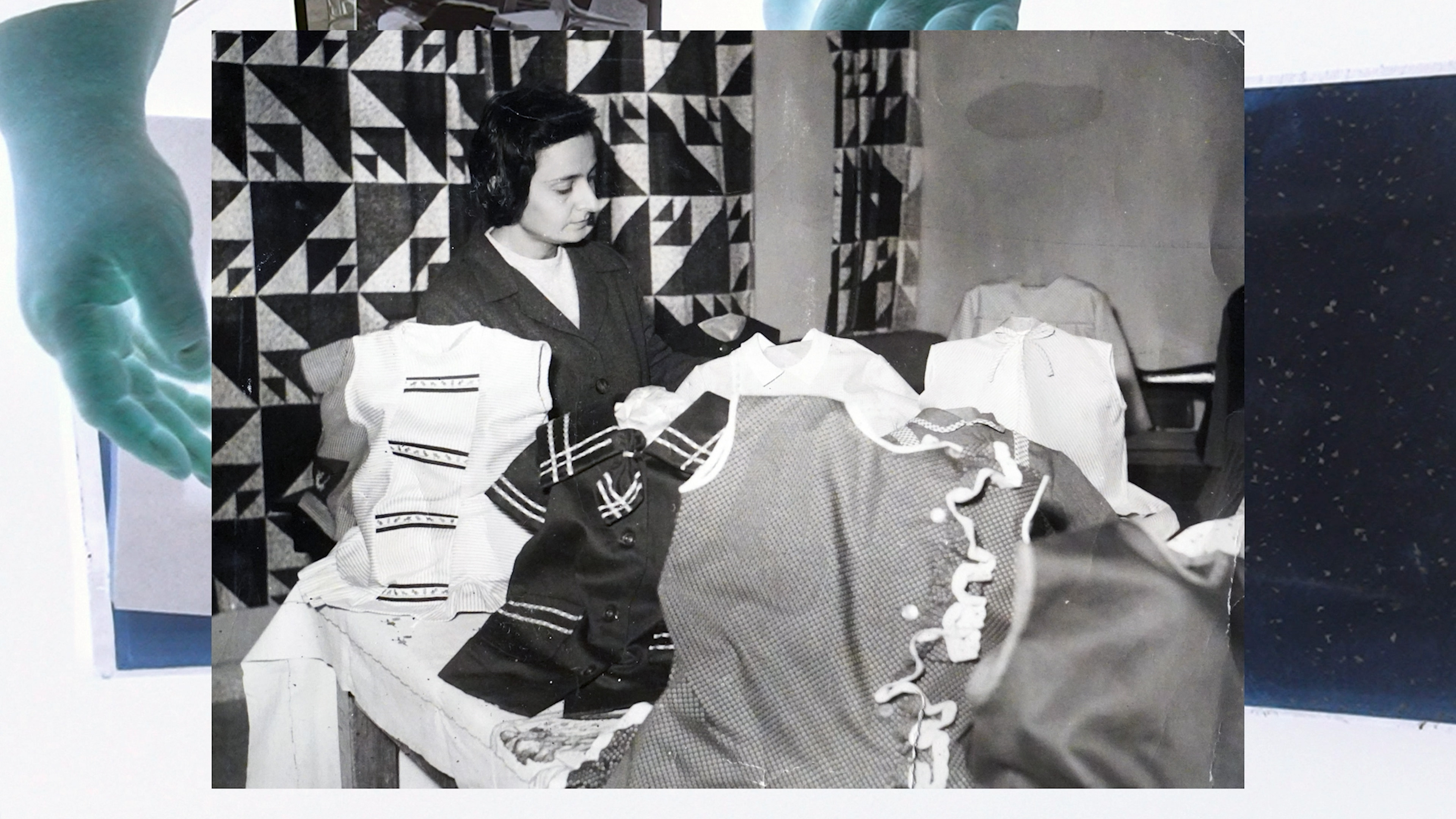Huda Takriti

Revisitation. In Three Acts takes its starting point from Edward Said’s book Reflections on Exile and Other Essays and his command of what a personal essay might read like. The work, which includes installations of printed fabric and individual prints, examines Huda Takriti’s family heritage, combining imagery from different sources: photographs from a family album as handled by her mother’s hands, portraits of the artist’s grandmother, Hikmat Al-Habbal, a textile artist and teacher, active in 1960s Kuwait, and stills from interviews with her extended family. The work invites viewers into a dialogue with the past, asking how histories are embodied, reconstructed, and framed, in ways that preserve and transform their meaning. It asks us to consider what can be seen and what sits outside the frame of the prints we are invited to see: can we picture Hikmat Al-Habbal’s wedding to a Palestinian refugee? Can we read the migration of a family from Lebanon to Syria, in the years leading to the Lebanese Civil War (1975-1990)? Can we feel the political pressures they experienced, which triggered their move? Or do these stories remain in the songs unsung?
Reflecting on the title of Said’s essay, the artist picked up on the term “reflections”. In Latin, the prefix “re” indicates a repetition; a “backward” movement. She extrapolates this motion as a series of recurring rehearsals, exploring themes of reciprocity, reimagining collective histories as recurring acts of dis/connection. Like in most of the works featured in this room, hers share their story through a fragmented arcline. Citing a collective essay, she explains: “To archive is to give place, order, and future to the remainder; to consider things, including documents, as reiterations to be acted upon; as potential evidence for histories yet to be completed.”